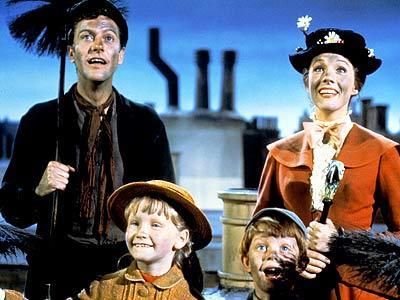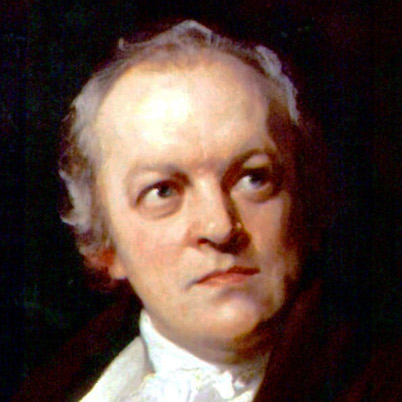Critical Analysis of The Ballad of Father Gilligan:
As the title of this poem suggests, it is a ballad. It tells a simple story that could have had its origin in folktales and legends. It also uses a rather uncomplicated rhyme scheme. Most importantly, it uses the story to teach its readers a pleasant lesson. Father Gilligan has been working hard. His job is arguably one of the best ways to serve God. He isn’t one of those priests who interprets the scriptures as he wishes and teaches his congregation to be intolerant of those with other religious persuasions. He is too busy looking after the spiritual well-being of his flock to do such things.
Most of his congregation is sick and is dying out, and so he spends all of his time sitting by them in their last hours and helping them pass over to the other side in peace. However, when one day he fails to do his duty because he has fallen asleep, he feels very guilty and rushes to right the wrong he thinks he has committed. When he arrives at the sick man’s door, he finds he is too late. He is filled with grief and remorse. But God knows that Father Gilligan has been a good servant to Him and he does not punish him. Rather God makes sure that one of his angels is there to take Father Gilligan’s place at the sick man’s bedside and to comfort him as he approaches death. When Father Gilligan finds out this has happened, he is filled with gratitude. He thanks God for not letting the poor man suffer without there being anyone who sits with him in his last hours. He also thanks God for having pity on his faithful servant and sending someone to do his job when he himself was too tired to do it. Hence this ballad teaches us that God has mercy on everyone – even those who feel they have failed him.
Stanza-wise Annotation of The Ballad of Father Gilligan:
Please note: N= noun, V=verb, Adj=Adjective, Adv=Adverb, P=Preposition
1st stanza:
Priest (N): An ordained minister of the Catholic, Orthodox, or Anglican Church, authorized to perform certain rites and administer certain sacraments
Weary (Adj): Feeling or showing extreme tiredness, especially as a result of excessive exertion
Flock (N): A Christian congregation or body of believers, especially one under the charge of a particular minister
Sods (N): Plural form of the word “sod”, that is, the surface of the ground, with the grass growing on it; turf
2nd stanza:
Nodded (V): Past tense of the word “nod”, that is, to let one’s head fall forward when drowsy or asleep
Moth-hour (N): The time when moths come in swarms
Eve (N): Evening
Grieve (V): Feel intense sorrow
3rd stanza:
Spake (V): An older form of the word “spoke”
4th stanza:
Knelt (V): Past tense of the word “kneel”, that is, to be in or assume a position in which the body is supported by a knee or the knees, as when praying or showing submission
Leaning (V): Present participle form of the word “lean”, that is, to be in or move into a sloping position
Peep (V): Look quickly and furtively at something, especially through a narrow opening
6th stanza:
Chirp (N): A short, sharp, high-pitched sound
Upright (Adv): (Of a person) sitting or standing with the back straight
7th stanza:
Mavrone (N): My grief (Irish)
Roused (V): Past tense of the word “rouse”, that is, to cause to stop sleeping
8th stanza:
Rocky (Adj): Consisting or full of rock or rocks
Lane (N): A narrow road, especially in a rural area
Fen (N): A low and marshy or frequently flooded area of land
9th stanza:
Swayed (V): Past tense of the word “sway”, that is, to move or cause to move slowly or rhythmically backward and forwards or from side to side
To and fro (Adv): In a constant movement backward and forwards or from side to side
10th stanza:
Merry (Adj): Cheerful and lively
11th stanza:
Hath (V): An older form of the word “has”
12th stanza:
Robes (N): Plural form of the word “robe”, that is, a long, loose outer garment reaching to the ankles
Poetic Devices in The Ballad of Father Gilligan:
Rhyme scheme:
Each of the 12 stanzas in this poem follows the same simple rhyme scheme, that is, ABCB.
Rhetorical devices:
Metaphor:
This rhetorical device is used when a covert comparison is made between two different things or ideas. In this poem, the poet uses the device of metaphor in the 3rd and 4th lines of the 1st stanza when he compares being sick to lying in bed and being dead to lying underground.
Compound Words:
Compound words are formed by adding two words into a single one when normally those words are not used together. In this poem, the poet uses the device of the compound word in the 2nd line of the 2nd stanza when he uses the word “moth-hour”. We cannot say for sure that the word was created by the poet himself, but it is for sure that there are not too many known occurrences of this word in the English language.
Litotes:
This rhetorical device is in the form of an ironical understatement in which an affirmative is expressed by the negative of its contrary. In this poem, the poet uses the device of litotes in the 4th line of the 7th stanza when he writes that the priest rode “with little care” instead of writing that he rode carelessly or recklessly.
Simile:
This rhetorical device is used when an overt comparison is made between two different things. In this poem, the poet uses the device of simile in the 2nd line of the 10th stanza when the dead man’s wife says compares him with a bird, saying he was in a similarly happy state when he died.
Central Idea of The Ballad of Father Gilligan:
Father Gilligan’s congregation is fast dying out. Therefore, he must rush to their death beds every day and every night. One night, he is too tired to do his job and falls asleep while praying. He wakes up at dawn, filled with guilt that the sick man who had called him the previous night must have died while he was sleeping. When he rides to the sick man’s door, his wife tells him she is surprised to see Father Gilligan again. She tells him that Father Gilligan had already come and spent the night there, leaving just as the man was about to die. Father Gilligan realizes that God must have sent one of his angels in the guise of Father Gilligan to perform his job in his absence. He thanks God for having pity on his tired body and soul.
Themes of The Ballad of Father Gilligan:
Features of the ballad:
A ballad is a stanzaic form that was popular in English poetry prior to the 17th century. Yeats revives this form in the 20th century through this poem. The ballad usually tells a story having its source in folktales and legends and having some supernatural elements as well. Here the fact that an angel appeared to the sick man’s bedside in the shape of Father Gilligan is a supernatural touch to the otherwise simple story. This poem also follows a simple rhyme scheme, as most ballads do. Lastly, this poem teaches us a pleasant lesson about having faith in God at our weakest moments.
God has mercy for everyone:
father Gilligan feels guilty because he believes he has neglected his guilty. He is filled with remorse because he thinks that the sick man had to die alone in his bed without anyone there to offer him any comforting words. However, he is wrong on both counts. What he knows in his heart but what slips his mind is that God has mercy on everyone. By sending an angel in the guise of Father Gilligan, God makes sure that the sick man dies a happy death and also that Father Gilligan gets some rest. That is how God takes care of all his flock, the way Father Gilligan has every day until that fateful night.
The Tone of The Ballad of Father Gilligan:
The tone of this poem is mainly sympathetic. He Father Gilligan tells us how tired he is, we can feel his weariness. When he falls asleep, we cannot blame him. When he rides to the sick man’s house, we root for that man to still be alive. When he finally learns how God has sent an angel in his place, we have a sigh of relief along with him.
Conclusion:
“The Ballad of Father Gilligan” is an atypical poem when seen next to the rest of Yeats’ oeuvre. However, it is still a delightful poem. It gives us the message that God has mercy for everyone, and this is a message for all epochs.
Some online learning platforms provide certifications, while others are designed to simply grow your skills in your personal and professional life. Including Masterclass and Coursera, here are our recommendations for the best online learning platforms you can sign up for today.
The 7 Best Online Learning Platforms of 2022
- Best Overall: Coursera
- Best for Niche Topics: Udemy
- Best for Creative Fields: Skillshare
- Best for Celebrity Lessons: MasterClass
- Best for STEM: EdX
- Best for Career Building: Udacity
- Best for Data Learning: Pluralsight













